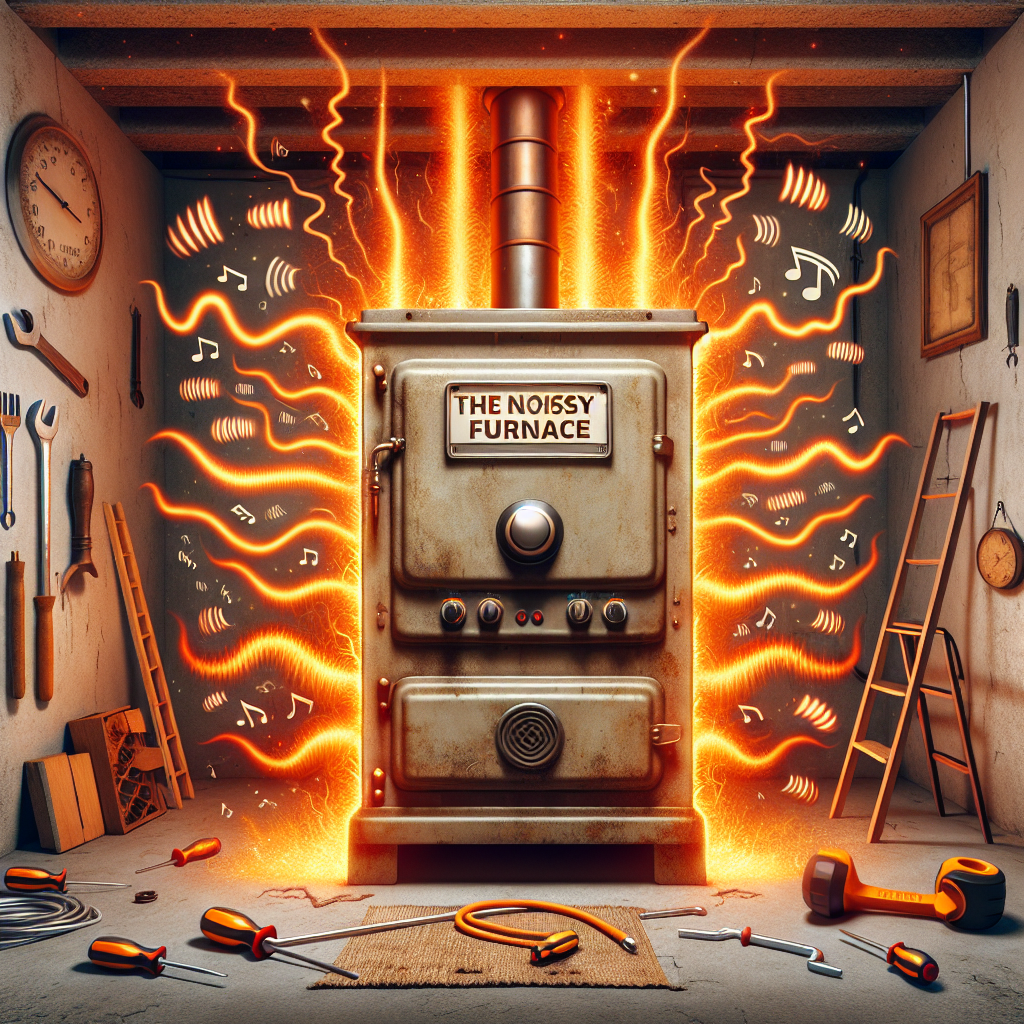When the chilly winter months roll in, a reliable furnace becomes your best friend. However, when that trusty heating system starts making strange noises, it can turn your cozy retreat into a source of anxiety. Understanding the sounds your furnace makes and what they mean can help you determine if it’s time for repairs. Let’s delve into the common furnace noises, their implications, and when you should call for professional help.
Common Sounds from Your Furnace and Their Meanings
1. Rattling or Banging Noises
If your furnace begins to rattle or make banging noises, it could be a sign of loose or damaged components. Ductwork may have become disconnected, or there might be debris trapped in the blower. Sometimes, foreign objects falling into the furnace can create unsettling sounds. Regardless, if you hear rattling or banging, it’s wise to investigate. Ignoring these sounds can lead to more severe damage down the line.
2. Hissing or Whistling Sounds
A hissing or whistling noise can indicate a couple of issues. It may arise from a gas leak, which is a serious concern that you should address immediately. If you smell gas alongside the hissing sound, leave your home and call your gas provider right away. Alternatively, if it’s a high-pitched whistle, it may be due to airflow restriction: dirty filters or ducts obstructing air might be the culprit. Regular maintenance of filters can prevent these sounds from occurring.
3. Scraping or Grinding Noises
Furnaces may issue a scraping or grinding noise when their internal components, such as the blower wheel or motor bearings, are wearing down. This friction can lead to significant damage if left unresolved. It’s crucial to schedule a repair to prevent the need for complete system replacement.
4. Short Cycling
Short cycling occurs when your furnace turns on and off frequently, producing a loud clicking sound. This could be a sign of thermostat issues or a furnace that is too large for your home. When your furnace works harder than necessary, not only is it noisy, but it’s also inefficient, leading to higher energy bills.
Why Your Furnace Makes Noises
Furnaces are complex machines designed to keep your home warm and comfortable. However, just like a car or any other appliance, they can develop issues over time. Regular maintenance is vital to keep your furnace running smoothly and quietly. This includes changing filters and scheduling annual professional inspections.
When to Call a Professional
While some sounds may be minor issues, certain noises indicate it’s time to reach out to a furnace repair expert. If sounds persist after initial checks, or if you notice a combination of noises along with other symptoms like reduced heating efficiency or unusual smells, don’t hesitate to call a professional. Ignoring these signs can lead to costly repairs or complete system failures.
Look for Warning Signs
In addition to unusual sounds, pay attention to warning signs that your furnace might be in distress. These include:
- Inconsistent heating throughout your home
- An unexpected increase in energy bills
- Yellow or orange flames in your furnace instead of blue
- Frequent resets or pilot light issues
If you spot any of these indicators, it’s time to take action to keep your furnace operational—and your home warm.
Preventive Maintenance: Keep Your Furnace Healthy
To minimize the risk of strange noises and unexpected breakdowns, regular preventive maintenance is key. Here are some tips to keep your furnace running quietly and efficiently:
- Change Filters Regularly: A clean filter allows optimal airflow and can greatly reduce noise.
- Schedule Annual Inspections: Having a professional inspect your furnace yearly can help identify potential issues before they escalate.
- Keep Ducts Clear: Ensure that your air ducts are free from blockages and leaks to mitigate rattling and airflow issues.
- Be Aware of Your System: Get familiar with how your furnace operates and the sounds it typically makes. This knowledge will help you detect abnormalities sooner.
Conclusion
Understanding the sounds emitted from your furnace can empower you to act quickly when issues arise. Invest in regular maintenance, stay alert for unusual noises, and don’t hesitate to call for professional help when needed. With the right care, your noisy furnace can become a quiet, efficient heating system that keeps your home warm and comfortable all winter long. Remember, a little awareness goes a long way in ensuring your furnace’s longevity and your peace of mind.


